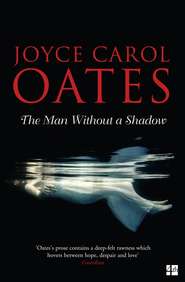По всем вопросам обращайтесь на: info@litportal.ru
(©) 2003-2024.
✖
Hazards of Time Travel
Настройки чтения
Размер шрифта
Высота строк
Поля
There was no personal note. I felt a small stab of disappointment for I had thought—I mean, I’d wanted to think—that S. Platz had taken a personal liking to me.
In my arms I carried my new belongings upstairs to room 3C. I grew short of breath quickly for I had not recovered from my long journey. Miss Steadman watched me with concerned eyes but did not attempt to help me another time.
Freshmen would be arriving on the Wainscotia campus the next day. I’d been sent into Exile at the perfect time and I did think that S. Platz must have had something to do with this timing.
Room 3C was at the rear of the cottage. A large room with two dormer windows and a slanted ceiling. Bare floorboards, bare walls with scattered holes for picture hanging and small nails.
Four beds, four desks: four roommates!
It was surprising to me, I would be rooming with three other girls and not alone.
But a relief, the room was ordinary. Except for the slanting ceiling that, if I wasn’t alert, would bump against my head.
Quickly my eyes glanced about. It would be an involuntary reaction in Zone 9: establishing that a new space held no (evident) danger. Nothing in it (that I could see) to frighten, threaten, or disorient.
Nothing unique to Zone 9. Rather, a room that could be anywhere.
I took the bed in the farthest corner, beneath the slanted ceiling. I would leave the windows, the better-positioned beds, and the largest closets for my roommates for I did not want them to dislike me.
“‘Mary Ellen’! Are you sure, you want that bed way off in a corner?”—so my roommates asked when they arrived, with evident sincerity.
These were nice girls. (Were they?) Staring at me with curious eyes but they were not rude, or did not mean to be rude.
Though they were enough alike to be three sisters they were strangers to one another. “White” girls—ST1. All were from rural Wisconsin and had gone to Wisconsin high schools. Their broad flat northern-midwestern accents were identical. Their names were immediately confused in my head like a buzzing of insects.
I thought—One of them may be my executioner.
“When did you arrive, Mary Ellen? Last night?”
“Where’re you from, Mary Ellen?”
“Did your parents bring you? Are they still here?”
“Sorry, Mary Ellen! We’re taking up a lot of room, I guess …”
Much of the day the room was crowded with parents, relatives, young children, helping my roommates move in.
I went away to hide. The sounds of strangers’ voices, loud, assured, happy-seeming, those broad flat vowels, were oppressive to me. But I did not cry.
At evening I returned to the room at the top of the stairs for I had nowhere else to go. Acrady Cottage was my home now.
EVENTUALLY, WHEN I BEGAN to wear the clothes that had come in the box, I would discover that only a few items fitted me.
Some things were too small, too short, too tight—most were too large.
Faint half-moons of stains beneath the armpits of sweaters. Loose buttons, missing buttons. Broken zippers. Dark-smeared something, possibly food, I hoped not blood, on a skirt.
The girls of Acrady Cottage would whisper among themselves, to see me so badly dressed—like a pauper, with clothes from Goodwill—but I never minded for I was grateful for what had been given to me.
My favorites were a pleated Black Watch plaid skirt (as it was identified for me by a roommate) with an oversized ornamental brass safety pin holding the skirt together—ingeniously; a dark-rose turtleneck sweater that reminded me of a sweater back home, though this sweater was much larger; a long-sleeved white blouse with a “lace” collar that fitted me, and gave me a serious, somber look, that I particularly liked because it seemed to suggest This is a good girl, a nice girl, a shy girl, a girl who would never, ever be subversive or raise her voice. Please be kind to this girl thank you!
In my old, lost life I had never worn blouses. I had never worn “lace”—or known anyone who had.
I had never worn skirts, dresses. I had worn only jeans. In fact, just two or three pairs of jeans, that had not cost much and that I wore all the time without needing to think.
In Zone 9 girls wore skirts to classes, sometimes dresses. They wore “sweater sets”—cardigans over matching short-sleeved sweaters. Sometimes they encased their legs in nylon stockings which I did not think I could manage without tearing, though I would try.
How my friends would laugh, to see me in a lacy blouse. In nylon stockings. In the Black Watch plaid skirt with the big brass safety pin holding the pleated material together—Oh God what has happened to Addie. Is that even her?
NOT A PLEASANT SIGHT. Electrodes in my roommates’ heads.
Well, not electrodes. I knew better.
“Like this, Mary Ellen. I can’t believe you’ve never ‘set’ your hair!”
Laughing at me. Not unkindly. (I wanted to think.)
But I could not manage it: putting my hair in plastic “rollers” before going to bed.
First, you wetted your hair with some special smelly setting-solution. Brushed and combed your hair. Separated your hair into numerous strands, and rolled these strands onto “rollers” (three sizes: largest pink, medium blue, smallest mint green) which were secured to the scalp as tightly as possible with bobby pins.
Yes, your scalp might hurt from the pins and from having to lie with your head on a pillow, on rollers.
You might even get a little headache! But it was worth it, for the effect of the smooth glossy pageboy the next day.
Tried just once. Awake half the night. Drifting off to sleep and waking in a nightmare sweat of electrodes in my brain. And in the morning most of the rollers had come out, and when I brushed out my hair it was as limp and straggling as ever, or almost.
Hilda said, “Next time, Mary Ellen, I’ll set your hair in rollers. Don’t you dare say no.”
COED (#ulink_7ae18e6a-90f6-50de-98fb-09e99da9370d)
So lonely! It was as if my body had been gutted from within.
As if, in the place where my heart had been, there was an emptiness that nothing could fill.
Other freshmen were homesick, and other girls in my residence cried from time to time in this new place. But their homesickness was a kind of exquisite torture, a way of measuring their love for their families. They called home, often on Sunday evenings (when the rates were lower) and received calls from home. They wrote home, and received letters from home. Their mothers sent them baked goods to share with their roommates and friends. And their homes were accessible to them—just a few hours away by car.
I began to be ashamed, as well as despondent, that I received no mail from home—no calls, no packages. I could not bear it, the girls of Acrady Cottage pitied me and spoke of me wonderingly behind my back.
Yet, there must be genuine orphans in the world, with no families and no relatives. The category into which Enright, Mary Ellen had been placed could not have been so empty of inhabitants.
I wondered if I would discover someone like myself? Or—someone like myself would discover me?
A “coed” at the State University at Wainscotia, Wisconsin, enrolled in the College of Liberal Arts with the likelihood of an education major, Class of 1963.
If this was Exile, it was not the cruelest Exile.
I knew this: the cruelest Exile would be death.











